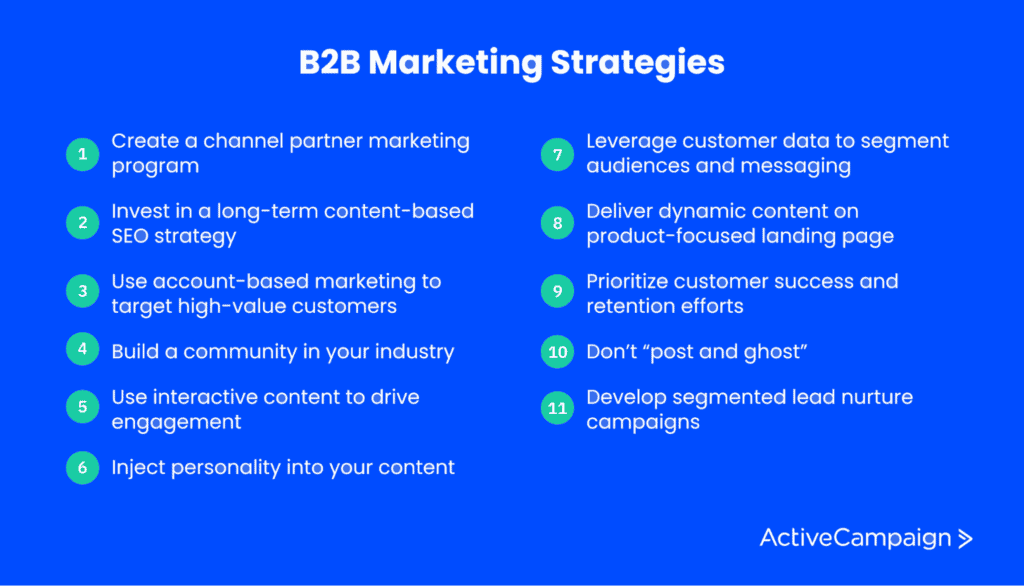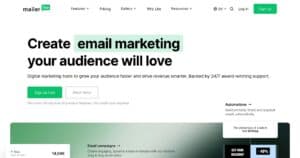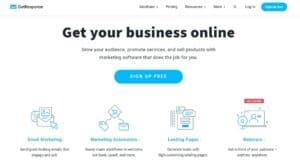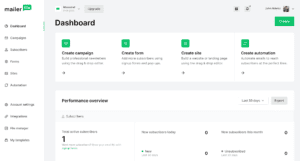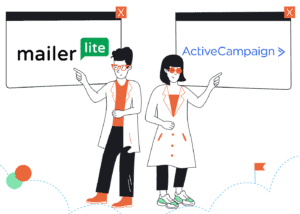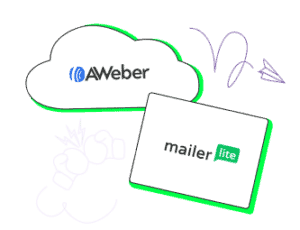Effective B2B Marketing Strategies for Driving Business Growth
Boost your B2B marketing with proven strategies to increase lead generation, conversions, and long-term business relationships.
Introduction: Why B2B Marketing Strategies Matter
In the competitive B2B world, marketing goes beyond simply reaching customers—it’s about building lasting relationships, solving specific problems, and demonstrating value that leads to business partnerships. Unlike B2C marketing, B2B strategies must focus on trust, professionalism, and creating a tailored customer experience. This article outlines key strategies to implement for successful B2B marketing, ensuring your business can thrive in a competitive environment.
1. Define Your Target Audience
Before launching any B2B marketing campaigns, you need to understand your target audience thoroughly. This involves defining your ideal buyer personas based on the following:
- Industry
- Job role/title
- Company size
- Pain points and challenges
- Buying behavior
Knowing your audience helps tailor your messaging, product offering, and communication channels to their needs.
2. Develop a Value Proposition
Your value proposition is the key message that sets your business apart from competitors. It’s crucial in B2B marketing to articulate why your solution is superior and how it will benefit your target audience. A strong value proposition should:
- Address the specific pain points of your audience.
- Clearly explain how your solution solves these issues.
- Differentiate your offering from competitors with measurable value.
3. Focus on Content Marketing for B2B
Content marketing is one of the most powerful tools in B2B marketing. By providing valuable and informative content, businesses can position themselves as industry experts and build trust with potential clients. Some content formats that work particularly well in B2B marketing include:
- Whitepapers: In-depth reports on industry trends, solutions, or research.
- Case Studies: Demonstrating real-world success using your products or services.
- Webinars: Live presentations or recorded tutorials that educate your audience.
- Blogs: Regular blog updates on topics relevant to your industry or services.
4. Leverage LinkedIn for B2B Engagement
LinkedIn is a key platform for B2B marketing due to its professional audience. Here are some ways to leverage LinkedIn effectively:
- Sponsored Content: Promote relevant articles, case studies, and insights to your audience.
- InMail: Use LinkedIn’s InMail feature to send personalized messages directly to prospects.
- LinkedIn Groups: Join or create groups focused on your industry to engage with your target audience and share valuable content.
- Networking: Build relationships with industry professionals, decision-makers, and influencers.
5. Email Marketing for Lead Nurturing
Email remains one of the most cost-effective B2B marketing tools. However, for B2B, email campaigns must be highly targeted and personalized. Implement these tactics for successful email marketing:
- Segmentation: Categorize your audience based on industry, interests, or stage in the buying process, allowing for more personalized email content.
- Lead Nurturing: Use automated workflows to engage prospects over time, offering valuable content that moves them closer to a buying decision.
- Follow-up Campaigns: After trade shows, webinars, or client meetings, follow up with personalized emails that remind potential customers of your services.
6. Account-Based Marketing (ABM)
Account-Based Marketing (ABM) is a highly targeted approach where you focus on specific high-value accounts rather than casting a wide net. This strategy involves:
- Identifying key target accounts (large clients or specific industries).
- Tailoring marketing messages and content specifically for these accounts.
- Working closely with sales teams to create a personalized sales experience.
ABM increases the chance of closing deals by offering customized solutions that align perfectly with the client’s needs.
7. Use SEO and SEM for B2B Lead Generation
Search Engine Optimization (SEO) and Search Engine Marketing (SEM) are critical in generating leads in B2B marketing. Here’s how to maximize both:
- SEO: Optimize your website for relevant keywords that your target audience searches for. Focus on creating long-form content, like blogs or resources that answer specific queries.
- SEM: Use pay-per-click (PPC) advertising to target high-intent keywords, ensuring your ads reach decision-makers actively searching for solutions.
8. Build Social Proof Through Testimonials and Case Studies
In B2B marketing, trust is paramount. Showcase social proof in the form of:
- Customer Testimonials: Share positive feedback from your clients, especially decision-makers from well-known companies.
- Case Studies: Develop case studies that highlight how your product or service helped a business overcome challenges and achieve success.
- Reviews and Ratings: Encourage satisfied clients to leave reviews on platforms like G2, TrustRadius, or your website.
9. Host Industry Events or Webinars
Engaging directly with your audience through events or webinars is a great way to establish thought leadership. Events allow for direct interaction and provide opportunities to showcase expertise, while webinars can be used to:
- Educate attendees on key topics relevant to your industry.
- Demonstrate how your solutions work in real-world scenarios.
- Build relationships with attendees by offering Q&A sessions or live demonstrations.
10. Optimize Your B2B Website for Conversions
A well-designed website optimized for conversions is essential for any B2B strategy. Key elements to include:
- Clear Call to Actions (CTAs): Ensure that every page includes a prominent CTA, whether it’s to book a demo, contact sales, or download a whitepaper.
- Landing Pages: Create dedicated landing pages for specific campaigns or industries that highlight targeted solutions.
- Lead Capture Forms: Use forms on high-traffic pages to capture visitor information in exchange for valuable resources like eBooks, guides, or case studies.
FAQs
What is B2B marketing?
B2B marketing involves promoting products or services to other businesses rather than consumers. It’s about building long-term relationships and providing solutions that help businesses grow.
What are some examples of B2B marketing channels?
Effective B2B marketing channels include LinkedIn, email marketing, webinars, SEO, and content marketing through blogs, whitepapers, and case studies.
How do you measure the success of a B2B marketing campaign?
Metrics like lead generation, conversion rate, website traffic, and return on investment (ROI) are commonly used to measure the success of a B2B marketing campaign.
What is Account-Based Marketing (ABM)?
Account-Based Marketing (ABM) is a strategy where businesses focus on targeting specific high-value accounts with personalized marketing efforts to increase the chances of closing deals.
Why is content marketing important in B2B?
Content marketing is crucial because it helps establish a business as an authority in its field, providing valuable information that builds trust with potential clients.
Top Tools to Simplify and Scale Your Business
- HubSpot – HubSpot’s CRM and marketing tools streamline lead generation, email marketing, and sales pipeline management.
- SharpSpring – SharpSpring offers comprehensive B2B marketing automation that integrates CRM, email marketing, and social media management.
- PandaDoc – Perfect for digital client management, PandaDoc simplifies the proposal process and helps close deals faster with automated workflows.
- Drip – Specializing in personalized email marketing automation, Drip allows businesses to nurture B2B relationships with customized email sequences.
- Vendasta – Vendasta provides an all-in-one platform that integrates lead generation, reputation management, and CRM solutions tailored to B2B businesses.
Keywords: B2B marketing, lead generation, account-based marketing, content marketing, email marketing, CRM tools, LinkedIn marketing, B2B strategies, business-to-business marketing

